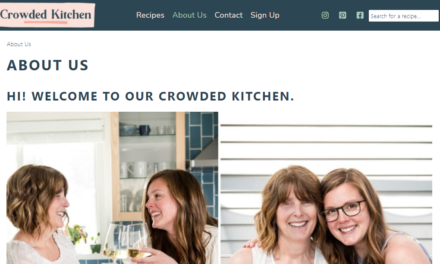With so much content out there, you never really need to start from scratch. Your content business could be more like a museum – a cool museum that people want to visit.
Sound weird? Stay with me for a minute.
Museums are curations of content. The Metropolitan Museum of Art picks some works by Monet, Renoir, and Manet to tell the story of impressionism in art. The Rock and Roll Hall of Fame and Museum pulled together a collection of rock-related pinball machines. The National Baseball Hall of Fame culls a collection of cartoons around the sport.
Yes, museums are in the business of content. OK, I know your dream of being a content entrepreneur probably didn’t mean you want to go into the museum business. You don’t have to. There are a lot more options.
With so much content out there, why not start a business curating content for a target audience? #contententrepreneur #startup #creatoreconomy Share on XLook at the Newsette founded by Daniella Pierson. They promote it as “news from beauty to business and beyond – plus an inspiring interview – delivered with a cheeky twist.” They curate news of the day and package it into an abbreviated version with their unique spin.
Creators of the Mortified, Dave Nadelberg and Neil Katcher, curate stories of the cringeworthy moments of adolescence and package them into an entertaining podcast (and stage show.)
One aspect of Basecamp Outdoor content business from Ali Carr and Jenna Celmer curates job opportunities that might interest their community.
The possibilities of content curation are limitless as a business and as a marketing tool for your business.
Tilt Advice
OK, we’ll admit this is a little meta. After all, The Tilt newsletter is an amalgamation of curated and original content. But that also means we’ve been done there, done that, and have some advice to share.
Successful content curation doesn’t work like this: Pull a word-for-word excerpt from a creator’s work, add a hyperlink, and move on to the next excerpt. That’s really being a recorder or republisher.
No, to do content curation well, you should have a tilt – giving that curated content a point of view that resonates with your audience. You also can transform it into a format that your audience prefers – a newsletter, a podcast, a livestream, etc.
Curate content with a point of view that resonates with your audience, says @AnnGynn. #contententrepreneur #contentcreator #creatoreconomy Share on XHow do you find the content to curate? If you’re not already deep into content and communities around your niche, now’s the time.
- Set up Google Alerts for hot topics and keywords relevant to your subject.
- Monitor conversations in online communities, from Discord servers to Facebook groups to Reddit and its subreddits.
- Search for your topic in Google News for timelier content.
- Subscribe to content products from leaders or fan favorites in your niche.
- Ask your audience what content they’re consuming. (And give them credit if you curate it.)
Your content delivery format can take on many forms. If you’re a visual brand, think about transforming text-based content into a great visual story. Maybe that’s an infographic or cartoon series. If you’re a video creator, you could mix graphics and narration to give your curated content a tilt. The point is to be creative – to deliver curated content that is refreshing, not redundant, to your audience.
One more thing. Content curation can also be a great marketing tool. On social media, you don’t have to (and probably shouldn’t) make it all about your business. Your followers and fans may welcome a little pause when you aren’t talking about your stuff. Content curation can help. Share content to enhance understanding, entertain, or simply recognize great content in your niche.
Content curation can be a great #marketing tool. Your fans and followers may welcome a pause when you aren't talking about your stuff. #contententrepreneur #contentcreator #marketing Share on XContent curation as marketing has another benefit, particularly for early-stage content entrepreneurs: You connect your brand to bigger names. They and/or their fans and followers may take notice and start connecting with you and promote your content too.
About the author
Ann regularly combines words and strategy for B2B, B2C, and nonprofits, continuing to live up to her high school nickname, Editor Ann. An IABC Communicator of the Year and founder of G Force Communication, Ann coaches and trains professionals in all things content. Connect with her on LinkedIn and Twitter.










